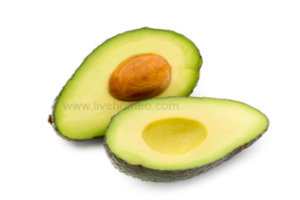Belly fat is the fat deposited around the midsection i.e. abdominal organs. Belly fat is also termed as stomach fat or abdominal fat or visceral fat. High fat around the stomach has a negative impact on health. Belly fat has a negative impact on organs of our body by producing high hormones and chemicals. It leads to health issues like heart diseases, diabetes, Alzheimer’s disease and colorectal cancer.

Causes of Belly Fat :
Factors causing belly fat are
- Stress
- Lack of exercise
- Over eating habits
- Genes
- Sleeping disorders
- Consuming refined carbohydrates
- Skipping meals
- Aging
- Hormonal changes
- Eating late at nights
- Have PCOS ( polycystic ovary syndrome)
- Taking beverages high in sugar
- Low protein and fibre foods.
Junk food causes Belly Fat?
Junk foods are processed food with high calories, low nutrients, vitamins and minerals. Junk foods are in high in calories, excess calories are stored as fat around stomach. Fat around stomach is treated as belly fat. Taking junk food effects metabolism process and causes chemical imbalance in our body. The biggest cause of belly fat is junk food and sugar items.
Losing Belly Fat is a time taking process :
It is easy to put on belly fat and but very difficult to get rid of it. It is difficult to lose belly fat than fat in other areas of the body. Controlling belly fat is a time taking process. With strict diet and regular exercises we can lose belly fat.
Ways to lose Belly Fat :
Belly fat has a negative impact on health, mood and looks. Fat can be under your skin or it can be around your lungs, heart, liver and other organs which is generally termed as visceral fat. Here are the list of ways to lose belly fat, one can control belly fat naturally by following these steps. They are
Exercise– regular exercising helps to control belly fat and fat in other areas and keeps us fit and healthy. Exercises like walking, running, jogging, crunches, bicycle exercises, lunge twist, bending side to side, aerobic exercises (cardio), high intensity interval training, rolling plank exercise and captains chair exercise.
Yoga and meditation– yoga is the safest way to lose belly fat. Asanas and breathing techniques of yoga helps to shed extra fat in your body along with belly fat. Suryanamaskara, pavan mukthasana, bhujangasana, dhanurasana, padahasthasana are some of the asanas which are helpful in controlling belly fat.
Therapies uses power of mind, it control stress, treats binge eating and helps to lose belly fat.
Diet– Diet plays an important role in our daily activities and to lose weight.
- Eat high fibre content food
- Eat protein rich food
- Include oatmeal and fish in your diet
- Eat more fruits and vegetables, they have good carbohydrates.
- Eat your breakfast and avoid late night eating habits
- Eat small meals
- Avoid foods that contain Tran’s fat and processed foods.
Good Sleep and control stress– sleep is very important for healthy lifestyle, to release stress and also to maintain weight. People with sleeping disorders or don’t get enough sleep are more likely to gain weight and belly fat. In order to control belly fat one should have enough quality sleep.



















